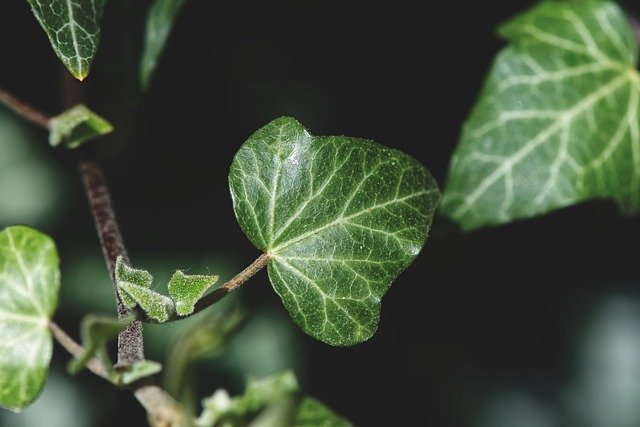
Consider horticulture as a hobby with many benefits and rewards. It does not matter if you grow vegetable or flowers, just the act of taking care of a garden and caring for your plants will offer many rewards. The information below provides a little advice and a few pointers when it comes to both your garden, and the act of growing.
Starting off your garden with healthy soil can be the best defense against those pesky garden bugs. Healthy plants grown in robust and enriched soil have an advantage in fighting pest infestation. You want to cultivate quality soil with adequate salt levels, which leads to healthy plants.
Choose the varieties of plants that will produce a higher yield. It is quite common to find that hybrids, which are often able to resist disease and withstand cold climates, produce yields much larger than their conventional counterparts.
When winter arrives, transfer some plants into the house to save them. This is especially useful if you have a particular plant that you love or was expensive. Carefully loosen the dirt around the roots, then transfer the plant into a pot filled with the same soil.
A handy trick is to turn the handle on a tool that you use often into a makeshift ruler. Tools that have long handles such as rakes, hoes and shovels can be used in place of a measuring stick. Lay the handles upon the floor and use a tape measure along side of them. Label the distances on the handle with a marker pen that will not smear or fade away. Next time you work in the garden, you can have a larger ruler with you!
Plants require a good amount of CO2 in order to grow to their maximum height. Typically, the higher the levels of carbon dioxide present in a plant’s environment, the better it will grow. A greenhouse can concentrate the levels of CO2. A greenhouse will help maintain a high level of CO2 and cause the plants to grow faster.
Baking Soda
Grow some plants that cats like to eat – try catnip or wheat grass. You could also place something that will cause your cat to go away from your plants, such as citrus peels or mothballs.
If you see mildew that is powdery, stay away from expensive chemicals to treat it. Combine baking soda with a small dollop of liquid soap and add it to water. Spray this solution on plants once weekly until the mildew is gone. Baking soda is a good way to get rid of mildew on your plants gently.
Allow enough room between plants for air to circulate, so that plants do not stay too wet. Moisture on your plants is a sure way to attract parasites and disease. In fact, fungi love a wet plant and can cause a great deal of damage. Be sure to prevent the growth of fungus with a spray that will inhibit their growth.
Save some plants in the winter by bringing them indoors. It’s a good idea to save any expensive plants or those that will thrive in indoor heat. Carefully dig around the rootball and replant in an appropriate pot.
A good green garden should start from seeds and not plants. Once the plant is healthy enough, replant it in your garden with the appropriate type of soil. Many of the plastics used for gardening simply end up going in the trash and clogging land fills. An environmentally-friendly garden is started with seeds or plants grown in organic pots.
Use proper soil for the best results. Depending on the types of plants you would like to grow, your garden’s soil might need to be amended with different substances to alter drainage, acidity and other charactheristics that make plants happy. You can also make an artificial area using only one type of soil.
Know the perfect time to harvest the vegetables in your garden. Different veggies have different windows of time in which they should be picked; it is during this period that the vegetable is most flavorful. For instance, peas and zucchinis are tastiest when picked young. On the contrary, tomatoes shouldn’t be picked from the vine until they are ripe as can be. Take the time to learn when your produce will be at its best for harvesting.
Fall edibles are a wonderful addition to your garden. If you’d like to change things up a bit this season, put away your standard clay pots and plant your lettuce and kale inside of a pumpkin instead! Slice a hole around the stem, and pull the pumpkin top out. Then remove the guts and use Wilt-Pruf to cover the insides and prevent rot. After that, your pumpkin planter is ready to use!
The water that is leftover from the steamed vegetables is great to pour over them. Add coffee grounds or tea leaves to the soil of acid-loving plants like rhododendron and gardenia. Chamomile tea applied to plants can be an effective remedy for fungus problems.
Ensuring your plants are both dry and aerated is a great way to keep them healthy. Plant moisture is a big attraction to both parasites and plant diseases. Fungi is a common problem in the world of plants. You can rid your garden of fungi with fungicidal sprays. However, it is best to treat your garden before there are problems.
Be careful how you water your garden. Use a soaker hose to save time so that you do not have to water each plant individually with a hose nozzle, or a watering can that needs to be refilled repeatedly. Use low water pressure for your hose so that you do not cause harm to the tender members of your garden. Allow it to water your plants for a couple of hours, so that you are free to do other things.
Remember to place a layer of mulch over the soil around your vegetables, approximately 2 inches deep. Mulch will retain water so that you won’t have to water your plants as often. In addition, mulch will help you to prevent weeds. This can save you a lot of time and effort in pulling out the weeds.
Using aspirin water will help your plants fight diseases. One and half tablets of aspirin in a couple gallons of water will be a wonderful help to the plants you have. Help your plants to fight disease by spraying them with the aspirin water. Your plants should be sprayed one time each three weeks.
Take a look at planting berry-producing evergreens in your yard. These help to give your garden nice looking color, even during winter when most vegetation is colorless. Some evergreens that will provide winter color are the American Holly, Common Snowberry, American Cranberrybush, and the Winterberry.
Create a space perfect for any perennial garden with this easy method. Use a spade to dig into the turf, turn the turf over, then spread the area with approximately three inches of wood chips. Allow the newly turned soil to sit for two weeks, then plant your perennials.
Give them a nutritious drink by using the water that you boiled your veggies in. If you grow rhododendrons, azaleas or gardenias, increase the acid in your your soil by working in coffee or tea grounds. Chamomile tea is a natural way to rid your plants of a persistent fungus.
Seeds that have sprouted don’t require the extra warmth that was needed before they sprouted. As your plants grow, you will want to put a little distance between them and heat. You can now take off any protective coverings on your plants that were there to shield them from the elements. Keep an eye on your seeds in order to know when you should do this.
One way to help your organic garden thrive is to leave an undeveloped area that is conducive to the wildlife around your area. You will then find that the wildlife that can help you create a garden that can flourish become present; from birds to insects, they’ll be around your garden and help your produce grow better.
Working in the garden doesn’t have to be grueling; learn to work more efficiently. Have your tools laid out in an orderly way so you do not have to search for them. Prepare them all ahead of time and have them handy before you need to garden, and then put them back in their place when done. If needed, purchase a tool belt or heavy duty pants with plenty of pockets.
Organic Plants
Improve the value of your home. If you are looking for high returns, landscaping gets you a lot of your money back. Some plant investments can raise your resale value by 20% or more. For landscaping your yard, pick out plant species that fit your climate and require little watering.
When growing organic plants indoors, it is important to consider the amount of light that is available to them. The amount of light available can determine which type of organic plants you should grow. For example, if your living area does not provide much natural sunlight, you could grow those plants that only need low to medium amounts of natural light to thrive. If you want to grow plants that need a lot of light, consider using artificial lighting.
When composting lawn clippings, leaves, and other materials, it is best to add the same amount of green, freshly-cut material as you do dried material. Green plant material includes grass clippings, spent flowers, vegetable and fruit waste, weeds and leaves. You can add dried plants by throwing straw, shredded paper, woody materials and cardboard on your pile. You should not use things like meat scraps, charcoal, blighted plants or the manure of meat-eating animals in your compost.
One way to ensure efficiency while gardening is to keep your tools close by. Use a large bucket, or wear rugged pants with several pockets. Make sure your trowel, pruning shears, gloves and other important tools are always handy. This will allow you to make easy work of your gardening up-keep!
When maintaining your organic garden, try lightly petting your seedlings — either with the palm of your hand or something like a sheet of cardboard — once or twice each day. However odd this may sound, research shows that this touching encourages seedlings to grow better than they would without touching.
As has been noted above, there are many rewards inherent in gardening. The benefits you gain from having a garden never end! You will have fresh veggies and beautiful flowers. Apply these tips to make sure you do everything properly for better results.
Think about what types of products you can use on your garden. Instead of fertilizers with caustic ingredients and potentially harmful chemicals, opt for all-natural or organically grown products. Using compost is a great example. If you choose to go organic, you have less of a chance that there will be chemical, toxic buildups in your soil and water.
These days, everyone wants to know about the world of pure cotton down alternative pillow
nurse home waterproof mattress protector
encasement mattress protector, but not everyone knows where to turn for the right information. Fortunately for you, this article has given you the information that you need to get started doing just that. Now you can put the various things that have been gone over here to good use.















